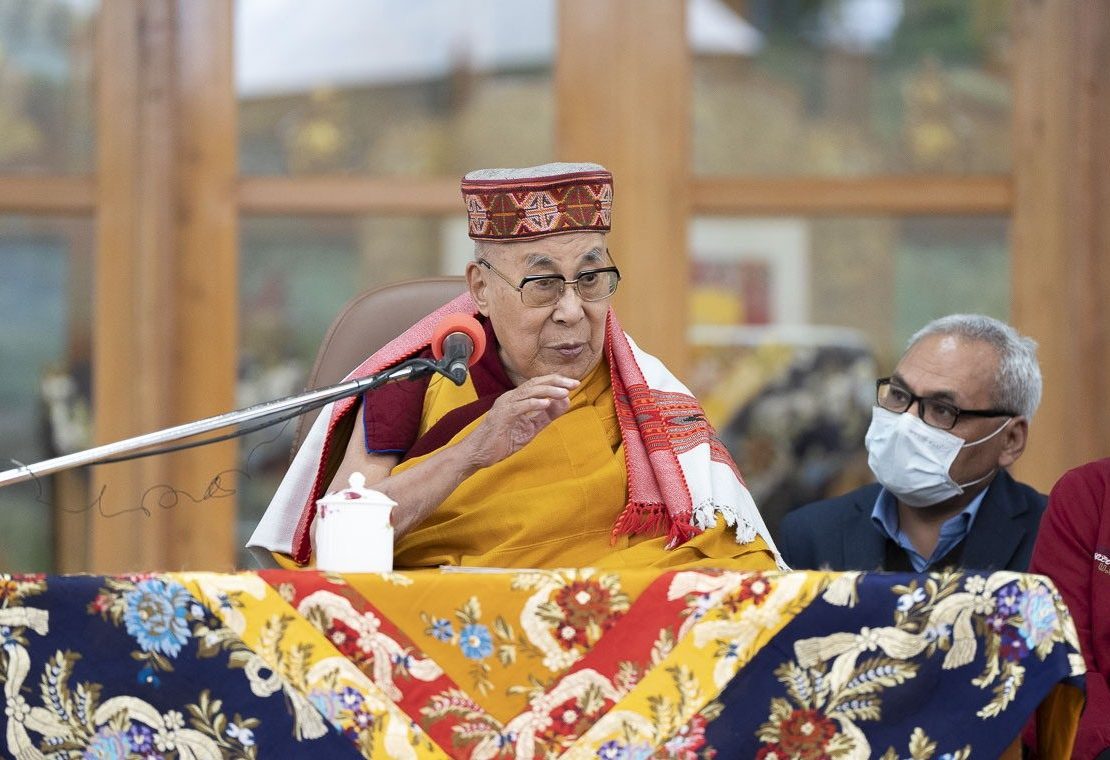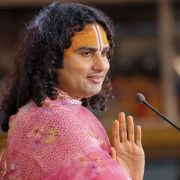The Dalai Lama has apologised after kissing a young boy on the lips and asking him to “suck his tongue” at a public event in India.
The interaction took place in late February at the Dalai Lama’s temple in Dharamshala, India where about 100 young graduates from the M3M Foundation were present. The apology comes after the footage of the incident went viral on Twitter last week.
In the video, one of the young male students approached a microphone at the event and asked the Dalai Lama: “Can I hug you?” The Tibetan spiritual leader, 87, told the boy to come up to the platform where he was seated. Motioning to his cheek, you can hear him saying “first here”, after which the child kissed him and gave him a hug.
The office of the Dalai Lama tweeted out an apology saying that his behaviour had been “innocent and playful”. It said in a statement: “His holiness wishes to apologise to the boy and his family as well as his many friends across the world, for the hurt his words may have caused.
— Dalai Lama (@DalaiLama) April 10, 2023
Since the clip went viral, many have called his actions utterly inappropriate despite the apology. The Dalai Lama, the holiest figure in Tibetan Buddhism has been embroiled in controversies before. In 2019 he caused an outcry after suggesting that if the Dalai Lama returned as a woman “she should be more attractive”, for which his office, again, apologised.
As the internet unearths more of his problematic associations, the world is calling into question his authority. People are calling to revoke his 1989 Nobel Peach Price. But many, mostly Tibetans and Buddhists are still flocking to his defence for one reason.
In 1950, China’s communist government invaded Tibet, insisting it has always belonged to China. The Dalai Lama fled in 1959 and set up a government in exile in India. Despite the past 70 years of Chinese rule, Tibetans have maintained their devotion to their spiritual leader, much to China’s chagrin.
To dilute the cultural and religious identity of Tibetans, the key for China is to control the Dalai Lama. And, therefore, China wants to decide who the next Dalai Lama will be. Since then, China has gone out of its way to establish control over the religion- by kidnapping potential successors (children as young as 7 years old) of tulkus chosen by the Dalai Lama and appointing their own. But for Tibetans who want freedom from China, he is still their greatest advocate.
To give you a bit of context, ‘tulkus’ are reborn teachers, masters or leaders also known as Bodhisattvas in Buddhism. Tibetan Buddhism has hundreds if not thousands of lineages of these bodhisattvas, but the most respected and well-known is the Dalai Lama. The 14 generations of Dalai Lamas span six centuries, travelling the world and spreading a message of peace, non-violence, and compassionate responsibility. At one point in history, the people of Tibet also considered him their ruler.
Given the dark history of religious systems protecting and oftentimes glorifying abusers, the popularity of religious leaders across the world is no doubt fleeting among younger generations.
In Dalai Lama’s particular case, though, his followers argue that critics have manipulated the video and are spreading misinformation. The most popular defence is that it’s apparently a ‘cultural thing’ in Tibet to greet people by sticking their tongues out. But no matter how much they stand up for him, the fact is that the video clip made the majority of the world uncomfortable, and the apology that followed after criticism felt like bare-minimum damage control.
Cultural nuances and traditions change over time. Things we considered appropriate at a point in history are no longer acceptable, and this will keep on continuing.
With the current and 14th Dalai Lama, Tenzin Gyatso almost 90, the whispers of who will succeed him have already begun. But this time the search will be complicated because of China’s involvement, and the outcome will have a greater impact than before. Regardless, I think it’s important to take a step back and examine the power that we give to the people we hail as our leaders, and how much of it is really making a positive influence.





